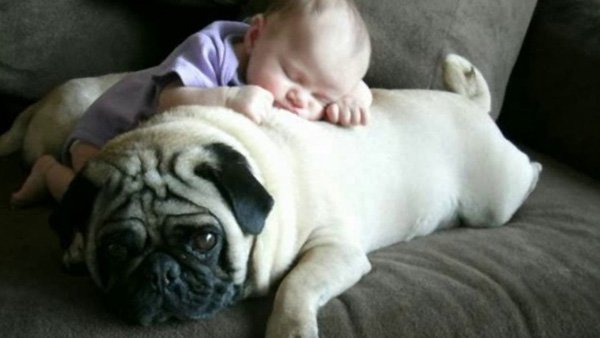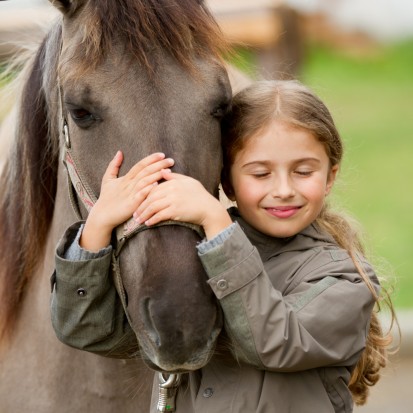
There is something particularly beautiful and sweet about the relationship between kids and Westies. Growing up with a canine companion can teach children that responsible care giving is well worth the effort, for the love and loyalty they receive in return.
A faithful Westie can instill in a child a sense of trust and security that will carry over into human relationship. Westies make great playmates, protectors and pillows and they are always available to listen and sympathize when parents, teachers, friends and siblings just do not understand.
Creating a good relationship takes understanding, communication and realistic expectations. Teach your child how to be sensitive to the needs of a Westie. Explain that Westies communicate with barking, body posture and facial expressions. Show your child how to pet the Westie gently, without pulling fur, tail or ears. Find special spots, belly or ears, that the Westie especially likes to be scratched, and sensitive areas such as feet and eyes, that the Westie does not like to be touched.
Supervise all interactions between children and Westies. This is especially true of babies and puppies.
Even well behaved Westies can get over excited during play, or have moments when they wish to be left alone. Even well behaved children can forget how to play nicely, or respond inappropriately to a Westies actions (or when the Westie chews a favorite toy).
Monitor their behavior to keep the peace and to keep child and Westie safe. However, Westies are not recommended for families with kids under the age
of ten, people who contemplate having children during the lifespan of their Westie and Grandparents who anticipate frequently visiting grandchildren.
Westies were bred to hunt and kill small critters that screech, squeal, scurry and run. Many times, the normal activities of children can bring out these instincts. Sometimes families find ways to deal with them, sometimes they do not.
Remember, when you have got your Westie, you made a commitment to love and care for this Westie for his entire lifetime. It is now your job to make sure that you find a way to live up to this commitment and that you do it in a way that makes all members of your family happy, including Westie.
Each Westie comes with its own set of traits and behaviors and each human has their perception of how much effort they are willing to expend. Each child presents different behaviors that may create some of the issues. It is up to you to adapt it to the new environment and cope with it.
 Dalmatian Puppies And Over-exercising
Dalmatian Puppies
Dalmatian Puppies And Over-exercising
Dalmatian Puppies
 Looking For a Good Ontario dog breeder
Looking For a Good Ontario dog breeder
You sho
Looking For a Good Ontario dog breeder
Looking For a Good Ontario dog breeder
You sho
 Chicken Coop Known To Be the Luxury Home for a Chicken
Chicken Coop Known To Be the Luxury Home for a Chicken
Chicken Coop Known To Be the Luxury Home for a Chicken
Chicken Coop Known To Be the Luxury Home for a Chicken
 Toileting Issues With Dogs
Toileting Issues
Toileting Issues With Dogs
Toileting Issues
 Considerations When Buying A First Pony For Your Child
Considerations Wh
Considerations When Buying A First Pony For Your Child
Considerations Wh
Copyright © 2005-2016 Pet Information All Rights Reserved
Contact us: www162date@outlook.com